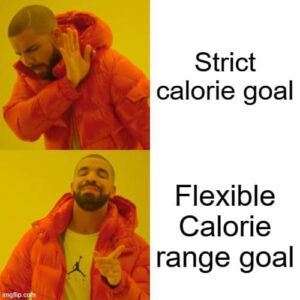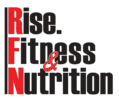Sticking to Your Diet When Social Events Collide. Ugh.
You’ve meticulously planned your diet, calculated your daily calories and macros, and you’re ready to begin.
But wait!
Tonight? Nope, work dinner.
Tomorrow? Birthday party.
The day after? Coworker lunch.
Suddenly, your carefully laid plans seem to crumble in a mess of social events.
So, how do you stick to your diet goals when life throws curveballs (or in this case, dinner parties)?
Let me be honest, starting any new diet and nutrition plan takes effort. Finding the “perfect” moment to begin – when the stars align, your schedule clears, your fridge is prepped, and you’re bursting with motivation – can feel like waiting for a unicorn sighting.

But life rarely cooperates. Let’s say you finally carve out a “perfect” Monday, meticulously tracking your food and macros. Monday sails by, Tuesday thrives, Wednesday shines.
Then, bam!
Thursday throws a lunch with a friend (or colleague, or anyone really) at you. Measuring food weight and tracking macros at a restaurant isn’t exactly an option. Uncertainty creeps in: “Did I mess up the entire week because of this lunch?“
What the heck are you supposed to do then, never start?
The lunch/dinner dilemma
You stare at the menu, stumped because you can’t recall your lunch.
What fits now? Then comes Friday, the diet’s nemesis. Strictness goes out the window as friends call for dinner. A few drinks later, you realize the calorie and macronutrient scales have tipped way over.
Guilt creeps in, and the cycle begins: Sunday vows of fasting, restrictive eating, or nonsense gym sessions to “punish” yourself. Sound familiar?
Perhaps you find anxiety looming before meals, after a hearty indulgence, or a fun night out.
If so, I’m here to offer ideas and advice on managing this food-related anxiety.
I’ll assume you have clear daily calorie and macronutrient goals, giving you a solid foundation. Don’t have it yet? You can calculate it here!
Ditch the all-or-nothing mindset and the short term
Restrictive periods followed by extreme measures create a rollercoaster of emotions and ruin your progress. Instead, aim for balance and flexibility in the long run.
Remember:
- Track, but don’t obsess: Logging your intake empowers informed choices. However, constant control increase stress, take it easy on yourself.
- Forgive slip-ups: A couple “off” meals, a cake, a few drinks won’t destroy your progress. Acknowledge and enjoy them, move on, and adjust future choices getting back on track.
- Practice mindful eating: Savor each bite, listen to your body’s cues, and understand if you’re hungry or if there’s something else behind. More about this here.
- Plan ahead: Prepare healthy snacks and meals to combat impulsive decisions. Being ready in advance is a HUGE game changer.
- Seek support: Share your struggles with a trusted friend, family member, or therapist.
Remember, a healthy relationship with food is built on self-understanding, flexibility, and informed choices. Anxiety hits the short term but you are aiming for the win in the long run.
Why Flexibility is Key to Calorie Goals
Imagine you have a daily calorie target of 2,000 kcal for the sake of this example. Here’s my advice: ditch the rigidity and embrace a range!
Consider a flexible range of calories – instead of aiming for a strict fixed 2,000 kcal limit, think 1,800 to 2,200.

Why the range? Because life happens!
Some days you might naturally eat less, simply due to having less food available or feeling less hungry and some others you’ll have more for other reasons (cakes? Birthday? Dinners) and it’s a-okay
With a fixed 2,000-calorie goal, even a “small” deviation like eating 1,700kcal can trigger unnecessary panic. This yo-yo dieting guilt circle can ruin progress and make your journey not sustainable in the long term.
Don’t forget that your body’s calorie needs fluctuate depending on activity levels so aiming for a range allows for this natural variability while keeping you on track towards your overall goals.
Think of it as a buffer zone that accommodates life’s ups and downs, without triggering anxiety or derailing your progress.
In a nutshell:
- Leave the fixed numbers: Opt for a flexible range like 1,800-2,200 calories instead of a strict 2,000.
- Listen to your body: Some days you might eat less naturally, and that’s perfectly normal
- Avoid the panic: Don’t sweat minor deviations. Adjust future choices if needed, and keep in mind, progress isn’t linear.
- Focus on the big picture: Aim for consistency within your chosen range over the long term, not daily perfection.
Embrace the flexibility and ditch the calorie anxiety! It’s a kinder, more sustainable approach to reach your goals and build a healthy relationship with food.

